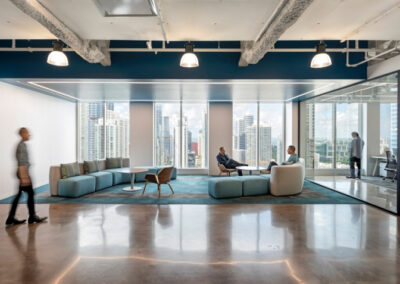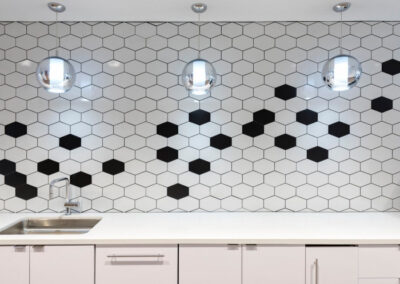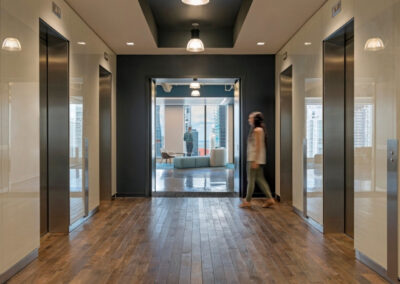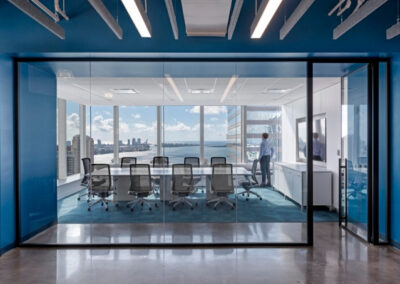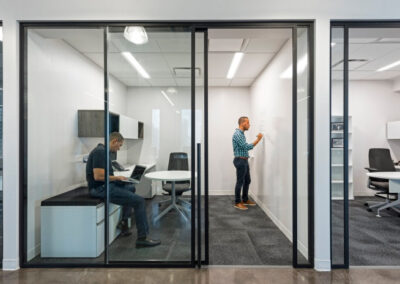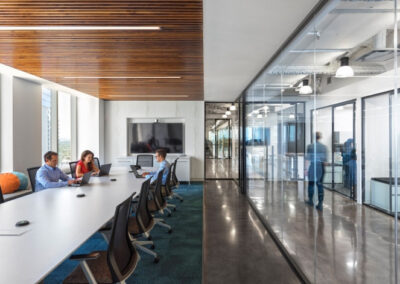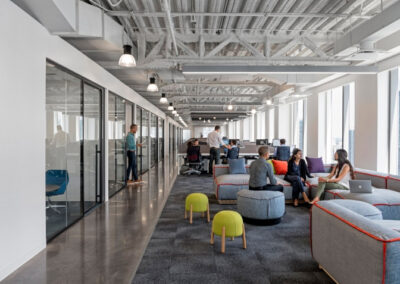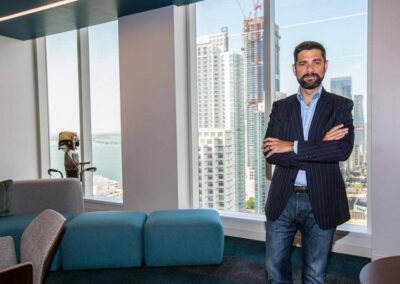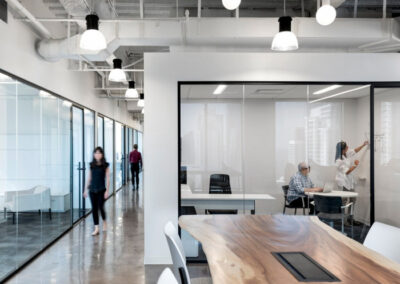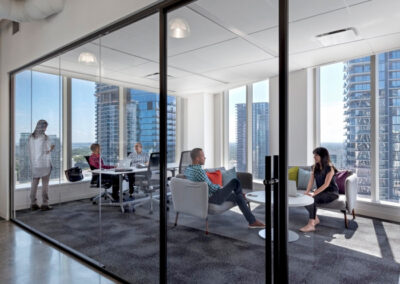French call-center giant making its new home in Miami
“Because it’s an international center for business, because of the energy of its people, because of its diversity, its direct flights to the rest of the world, because it’s perfect for a global company,” said Laurent Uberti, president and CEO of Acticall Sitel Group. It is a French company that is one of the world’s largest customer service management firms — an enterprise with 77,000 employees that provides call center and customer service options for large and small companies in more than a score of countries.
What the CEO didn’t stress: It’s also less expensive, and a lot warmer, than the Big Apple.
Acticall Sitel, which operates mainly in the United States as Sitel, moved its world headquarters from Nashville, Tennessee, in 2015 after Acticall, a customer relationship management enterprise based in Paris, France, took over the much-larger Nashville-based call center company Sitel (Systems International TELemarketing) and began to expand its domestic and international reach.
Companies like Acticall Sitel are popularly known as “call center” firms, which operate large buildings that are filled with people — often speaking different languages. They sit in cubicles and use phones to take online retail orders, find out about a problem with your checking account, receive a variety of customer queries or complaints, or explain the products and services available from your telecom provider or high-tech company. They provide an essential service for companies that don’t want to invest large sums in these essential call centers.
This is a huge, highly competitive multibillion-dollar international business, and Acticall Sitel is using its experience and technology to win new market share as it builds its world headquarters from a tower on Brickell Avenue.
Aside from call center operations (customer experience management in the trade), Sitel offers clients a range of other services under different brands, like Learning Tribes (for training customer service employees), The Social Client (social media plans and research), xtens (consulting) and novagile (IT solutions).
The firm is also working aggressively to develop and deploy programs (bots) that offer customers fully- or partially-automated robots that talk and chat with callers, bots that assist human employees and training programs where humans teach bots.
“We are a toolbox for helping companies manage their client relations,” Uberti said. “Our business includes onshore operations (for U.S. clients), nearshore (Latin America, mainly to support U.S. companies) and offshore” in many other countries. “Bot-shore,” which involves the use of computers to effectively help customers, is a key focus for the company as it grows.
“What we offer the world is global reach, and local expertise,” he said. “Knowledge of the village.”
Company name: Acticall Sitel Group.
Ownership: The group is owned by Creadev, an international investment firm based in Paris, France, with 200 companies and 700,000 employees in 32 countries. Creadev is owned by the Mulliez family, reportedly the richest family in France, which made much of its money in retail businesses.
Launched: Acticall Sitel was set up in 2015 when Acticall acquired Sitel. Formerly headquartered in Nashville, Sitel was founded in 1985. Acticall, based in Paris, was established in 1994 and was later taken over by Creadev.
Co-founders and current leadership: Laurent Uberti, co-founder of Acticall and currently president and CEO of Acticall Sitel; Olivier Camino, co-founder and currently COO, and Arnaud de Lacoste, co-founder and currently chief marketing officer (CMO).
Revenues: $1.7 billion in 2016 for global operations, the company said, with Sitel providing most of the revenues. Before the merger, both companies were growing their sales: Sitel by about 3-4 percent per year and Acticall (in Europe) by about 10 percent. The CEO expects stronger future growth from combined operations, or about 6-7 percent next year.
The difference: “We’re a global company with local expertise,” Uberti said. “Our edge is that we provide our clients a holistic, one-stop-shop for building a robust customer experience solution. We differentiate ourselves from other companies in this space as a complete digital solutions provider, from call centers to chatbots (computer programs that conduct voice or text conversations), artificial intelligence, social media, associate training and more.”
Clients: A diversified global base of more than 300 customers including large companies in telecom (like AT&T), financial services (American Express), retail (Whirlpool), technology/manufacturing, and cable systems, plus smaller businesses in a variety of other sectors, according to the company’s website. The top 10 clients represent only 35 percent of its diversified revenue stream.
Competitors: Large customer service management firms like Teleperformance and Convergys.
Employees: 77,000 globally. The Miami headquarters currently has more than 40 employees, and the company expects to base about 100 here when staffing is complete. Largest call center worldwide is in the Philippines, with 23,000 employees serving international clients, especially in the U.S.
Global headquarters: 600 Brickell Ave., Miami. Administrative offices in Nashville, customer centers in Ocala and operations in 22 other states. The company operates in more than 20 countries.
Customer view: Brazil is one of the world’s largest and most competitive markets for call center/customer relations management, and Acticall Sitel has secured a major foothold there — Whirlpool Brazil.
“About three and a half years ago, we had a small sales operation with them, and they did a great job,” said Carlos Eduardo Souza, director of customer service for Whirlpool Brazil, in Latin America’s largest economy and the country with the region’s biggest population. Several months ago, Whirlpool sought bids for its entire customer service operations, and Acitcall Sitel won. “They moved from 50 agents dedicated to Whirlpool to 600,” Souza said, and were not only responsible for water purification products (a huge market in Brazil) but also for after-sales service for Whirlpool’s white-line products, covering the country’s leading brands and more than 100 million appliances. “We have great relations with them, better than other companies in the same field, and we are working with them to reduce the number of agents and move to digital and automated solutions,” he said.
Business lesson: “We learned to adapt our services to different markets, clients and cultures,” Uberti said. “This goes far beyond different languages. In the U.S., for example, we knew about American culture, but we had to learn more.”
Best decision ever: Moving into artificial intelligence to offer clients a much better customer experience, including fully- or partially-automated robots and human-assisting bots. These will be followed by humans training bots and managing groups of bots.
Strategy and challenges: The company will continue to evolve its global footprint, developing existing clients and adding new ones in the U.S., in Latin America (to support U.S. clients), and in countries like Brazil and Germany, Uberti said. China will come later. The company must know the culture of each customer well, to provide the best service and added value, and must always remain close to the client: “Knowing the village.” It must also maintain a good balance between its U.S., nearshore and offshore operations, and develop its “bot-shore” (robot) capabilities.
Website: www.sitel.com
http://www.miamiherald.com/news/business/biz-monday/article157886769.html

